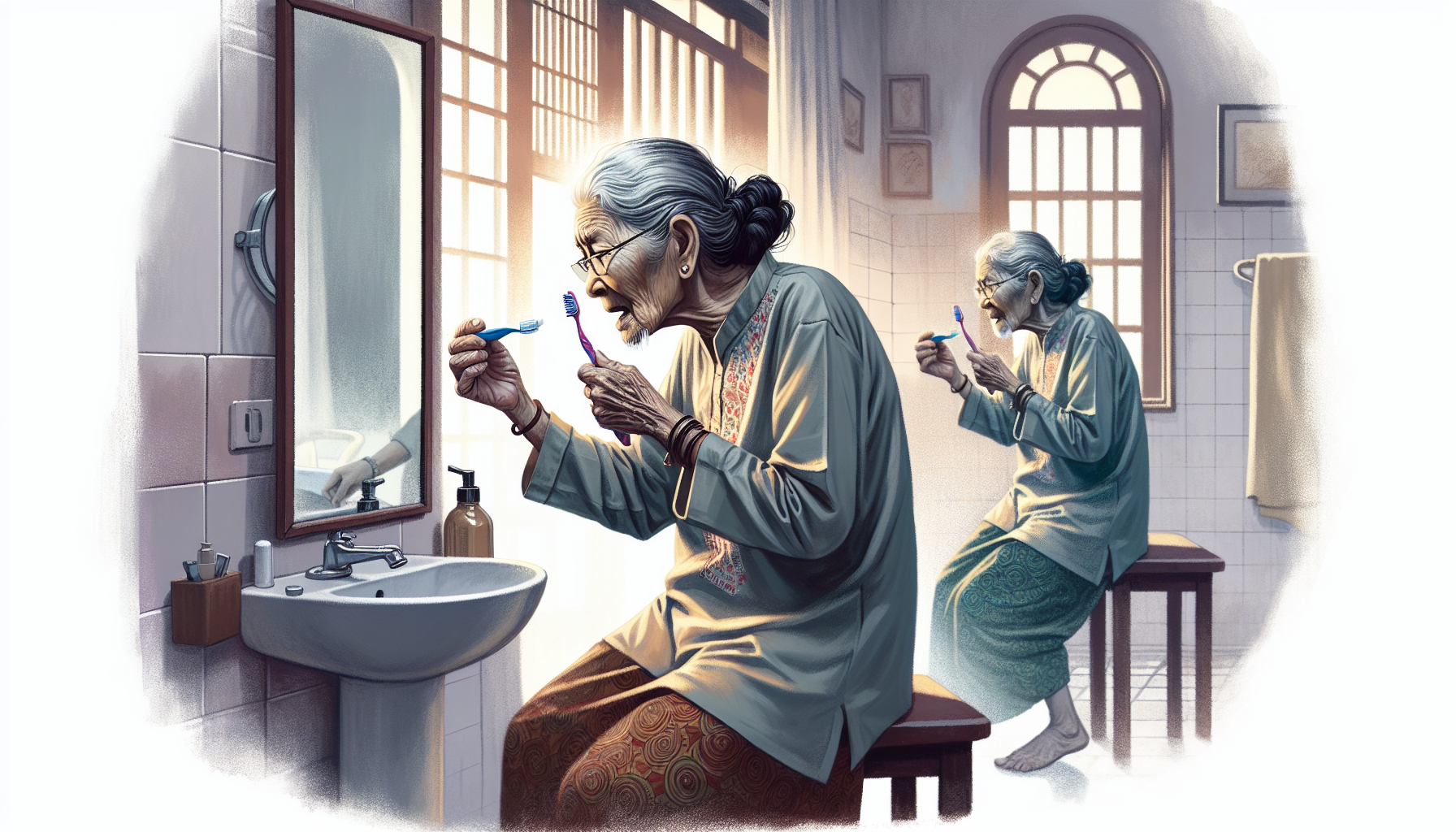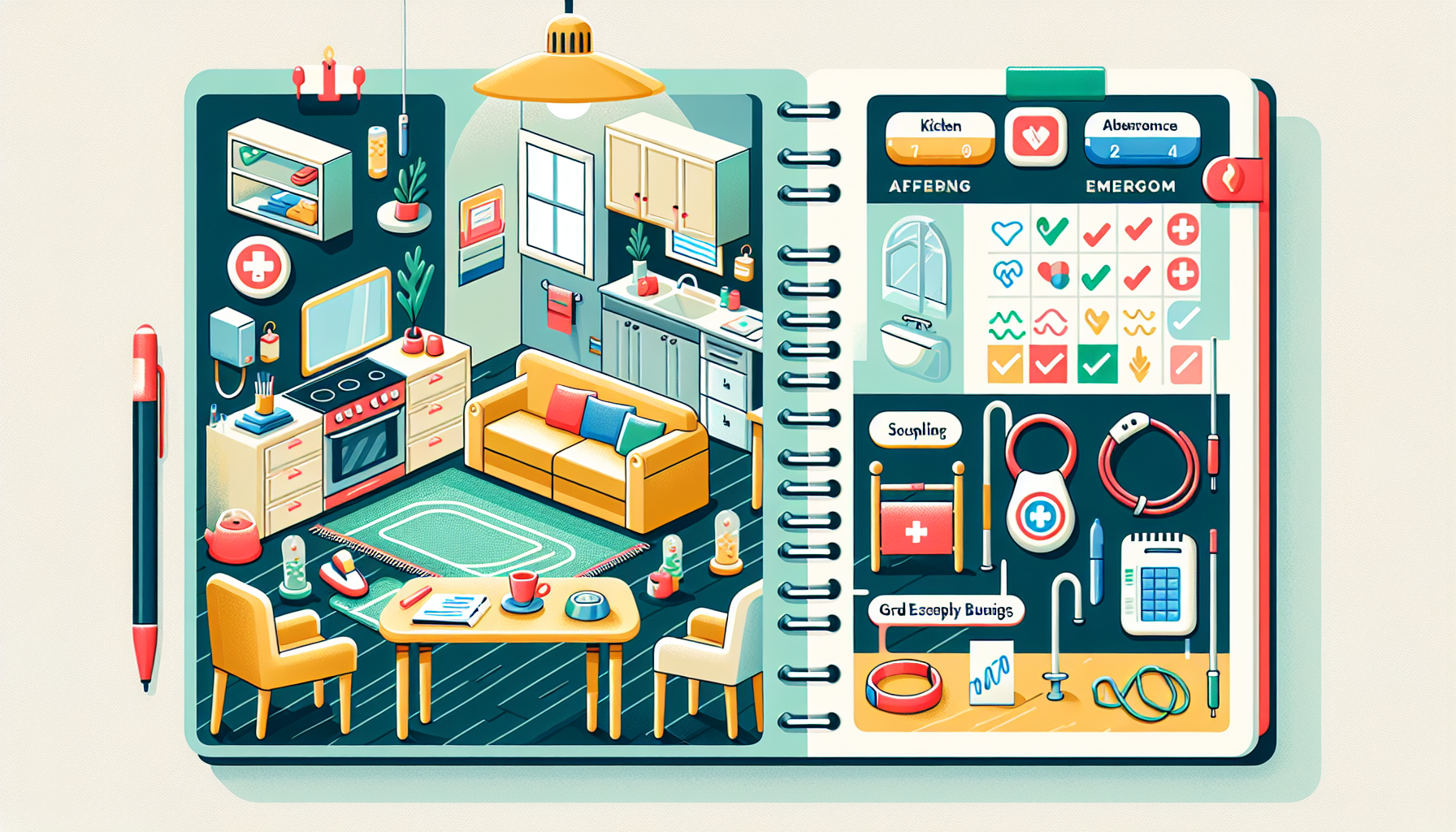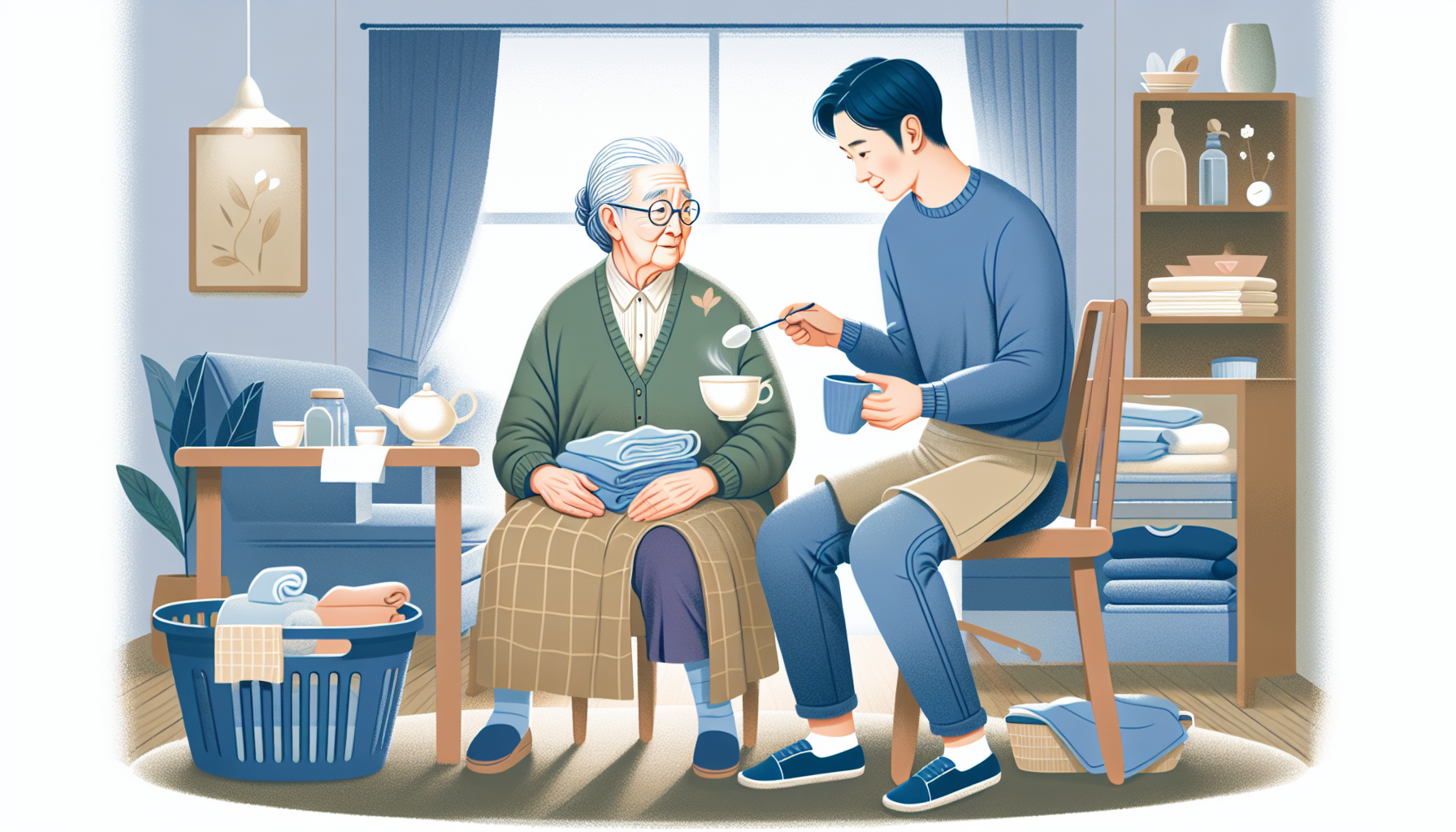Deciding when should someone with dementia go into a care home can be daunting. The transition becomes necessary when their safety, the intensity of care required, and the caregiver’s well-being are at stake. This guide explores the signs indicating that in-home care might no longer be suitable and when professional memory care in a dedicated environment may become essential.
Quick Summary
Advanced dementia increases safety risks due to severe memory loss and disorientation, indicating the need for specialized memory care facilities when home care becomes inadequate.
Caregivers must consider their own capacity and well-being, recognizing signs of burnout and the potential need for professional dementia care services to maintain safety and quality care.
Long-term dementia care planning should involve careful consideration of the individual’s preferences, legal preparations, and financial strategies to access appropriate care facilities like memory care units.
Recognizing the Signs of Advanced Dementia

A shift in perspective becomes necessary when dementia progresses to a stage where safety is compromised and home needs are no longer being met. The subtle cues of early stage dementia gradually morph into more pronounced signs, where memory loss impacts daily function, and disorientation can become life-threatening.
As everyday tasks become increasingly difficult, caregivers are confronted with a critical decision: Continue providing the required level of care or consider dementia care services better suited to these emerging needs?
Memory Loss Beyond the Early Stage
As dementia progresses past the early stages, deepening memory loss erodes independence, necessitating increased support. The cognitive decline associated with Alzheimer’s disease and other dementias reaches a point where even the most basic tasks can become insurmountable, signaling the potential need for memory care facilities capable of providing the specialized care that a home environment may no longer be able to offer.
When Disorientation Becomes Dangerous
As dementia advances, disorientation, one of its key symptoms, can put an individual in potentially dangerous situations. Wandering off is not just a matter of getting slightly lost; it can mean finding themselves in harm’s way, unable to navigate back to safety. When the threads of time and place unravel, and the familiar becomes foreign, the dangers magnify, underscoring the urgency for a secure environment that a memory care unit can provide.
Challenges in Performing Everyday Tasks
Everyday activities such as dressing, grooming, and eating can turn into a struggle for those with dementia. As the disease progresses, once-autonomous routines require the guiding hand of a caregiver. When personal hygiene suffers and mealtime turns into a forgotten or frustrating chore, it’s clear that additional help is not just beneficial, but necessary.
Often, this help initially comes in the form of in-home care. Professional caregivers assist with Activities of Daily Living, items such as bathing and grooming, personal hygiene needs, dressing assistance, and so forth. With a good team of in-home caregivers and the desire of the senior and those involved for the senior to remain at home, in-home dementia care can continue for quite a long while.
Evaluating the Caregiver’s Capacity

While caregiving is an act of love, it presents unique challenges, particularly in the context of dementia care. The pressures can mount, leading caregivers to a point of burnout—a state where their physical and emotional reserves are depleted, and their capacity to care effectively is compromised.
The well-being of the caregiver is as important to assess as the needs of the dementia patient, both being crucial components of the caregiving process.
Signs of Caregiver Burnout
The weariness of a caregiver is often silent, manifesting in:
Chronic fatigue
Stress
A creeping shadow of depression
Anger may flicker towards the dementia patient, even as the caregiver withdraws from the social activities that once brought joy
Concentration falters
Resentment builds
Guilt becomes a constant companion.
Acknowledging these signs of burnout should prompt the pursuit of support, either from professional dementia care services or from other family members who can help share the caregiving responsibilities.
Professional Dementia Care at Home: A Comprehensive Approach
Enlisting professional dementia care at home can be a lifeline for families striving to keep their loved ones in familiar surroundings while ensuring their complex needs are met. Professional caregivers are specially trained to handle the nuances of dementia care, bringing a wealth of expertise and compassion into the home. Their services extend beyond basic assistance, offering a comprehensive care plan that includes:
Personal care assistance, such as help with bathing, dressing, toileting, and grooming, which respects the dignity and privacy of the individual.
Nutritious meal preparation, tailored to dietary needs and preferences, ensuring that individuals with dementia maintain a balanced diet.
Medication management, which involves organizing medications, providing reminders, and monitoring for side effects to ensure proper adherence to medical regimes.
Mobility assistance, including support with walking and transferring to reduce the risk of falls and maintain as much independence as possible.
Companionship, which is vital for emotional well-being, involving activities such as conversation, reading, engaging in hobbies, or simply spending time together.
Cognitive stimulation through activities designed to engage the mind, such as memory games, puzzles, and music, which can help slow the progression of cognitive decline.
Respite care, offering family caregivers much-needed breaks to recharge, attend to personal matters, or simply rest, knowing their loved one is in capable hands.
Support with household chores and errands, maintaining a clean and organized living space, and helping with shopping and other outside activities.
Behavior management techniques to address common issues such as agitation, aggression, or wandering, providing strategies to maintain a calm and safe environment.
Communication support, aiding in the expression of needs and emotions, and fostering meaningful interactions despite language barriers.
Night-time care, ensuring safety and assistance during the night, which can be particularly challenging for those with dementia prone to confusion or restlessness.
These caregivers not only provide assistance but also respite for family caregivers, ensuring the person with dementia receives compassionate and quality care around the clock. Their presence can significantly ease the burden on families, allowing them to enjoy quality time with their loved ones with the reassurance that professional care is at hand.
Balancing Family Member Roles
The caregiving journey shouldn’t be a solo venture—it’s better undertaken with the support of family. By involving spouses, children, and adult siblings in caregiving discussions, tasks can be distributed, and the weight of responsibility shared.
Open communication is key, not just within the family but also with employers, who may offer flexible work arrangements to accommodate the demands of elder care.
Considering Health and Safety for All
As dementia progresses, the physical safety of the person with dementia and their caregivers becomes paramount. Wandering and risky behaviors escalate the need for vigilance and often exceed the capabilities of untrained family members.
Health care providers must assess these risks and determine if a home setting is still safe or if a transition to a memory care facility, with its trained staff and safety measures, is the more prudent choice.
Home Safety Concerns That Signal a Need for Change

The home is a sanctuary, but for someone with dementia, it can hold hidden dangers that compromise their wellbeing. A thorough home safety evaluation is essential to identify and mitigate risks, ensuring the environment remains conducive to care.
We should consider the modifications and interventions that can bolster the safety net surrounding a loved one with dementia, aiming to maintain their security in their own homes for as long as feasible.
Identifying Fall Risks and Mobility Issues
Physical changes in those with dementia—balance issues, vision impairment, and compromised depth perception—exponentially increase the risk of falls. To counter this, environmental adjustments are critical; securing carpets, clearing pathways of clutter, and installing grab bars are just a few measures that can help the person with dementia navigate their space more safely.
Managing Medications and Health Conditions
Medication management for someone with dementia is a delicate balance, requiring meticulous oversight to prevent adverse effects. Here are some strategies to consider:
Use locked cabinets for medication storage
Clearly label pill organizers
Establish routines to ensure the individual receives the correct dosage at the right time
These strategies are instrumental in ensuring medication safety, especially as cognitive decline progresses.
The Role of Health Care Providers in Assessing Risk
Health care providers are often the compass that guides families through the uncertain terrain of dementia care. Their assessments determine the level of supervision required and the suitability of the home environment. By identifying risks and collaborating with caregivers, they play a vital role in ensuring the safety and wellbeing of the person with dementia.
The Progression of Dementia Symptoms

Understanding the progression of dementia symptoms is like reading a map through uncharted territory. Each stage brings its own challenges, and symptoms often blur into one another, making it difficult to pinpoint when exactly the care needs intensify. A dementia diagnosis can be a crucial step in navigating this complex journey.
We need to understand how these symptoms progress and what this means for the level of care that becomes necessary.
Cognitive Decline and Spatial Awareness
As dementia advances, cognitive decline strikes at the heart of spatial awareness, turning familiar spaces into labyrinths. Tasks that once came naturally, like navigating a room or recognizing objects, now require guidance. This significant shift underscores the escalating need for specialized care that can adapt to the changing abilities of the person with dementia.
Behavioral Changes and Agitation
The moderate stages of dementia can bring a storm of behavioral changes—confusion, suspicion, and fear—that brew agitation and complicate caregiving. These changes can manifest in ways that are not just distressing but also pose physical risks, necessitating a level of care and supervision that ensures safety for everyone involved.
Quality of Life Considerations
Amidst the challenges of dementia, the quality of life for the individual remains a beacon of focus. Sensory experiences like touch and sound still have the power to comfort and connect, emphasizing the need for care that goes beyond physical health to address emotional and spiritual needs.
Engaging the individual early in care planning discussions fosters a sense of autonomy and respect for their preferences.
Options for Long-Term Care

As dementia care needs intensify, long-term care options come to the forefront of planning. Choosing the right care community, such as continuing care retirement communities, life plan communities, or residential care communities, involves careful consideration of various factors, from the expertise of the staff to the types of programs and treatments available.
It’s worth examining the different options and their benefits for individuals with dementia and their families.
Understanding Assisted Living vs. Nursing Homes
Navigating the landscape of long-term care means distinguishing between assisted living and nursing homes. Assisted living provides a supportive environment for those who can still engage in day-to-day activities with some assistance, while a nursing home offers a higher level of medical care for those with more complex health needs, ensuring they receive the attention and supervision necessary to live safely.
The Benefits of Specialized Memory Care Units
Memory care units are sanctuaries designed with the needs of dementia patients in mind, providing 24-hour supervision, structured routines, and therapeutic activities tailored to enhance memory function. The specialized training of staff in these units ensures that the care provided is attuned to the unique challenges of memory loss, offering a safe and nurturing environment for residents.
Financial Considerations and Veterans Benefits
While the benefits of specialized care are clear, the financial considerations are equally crucial. The costs associated with dementia care facilities can be daunting, but resources such as veterans benefits and long-term care insurance can help alleviate the financial burden, making quality care more accessible.
Planning Ahead: Making Informed Decisions
Deciding on dementia care isn’t a quick decision but a long-term commitment requiring careful planning and foresight. As the capacity for decision-making wanes with the progression of dementia, early planning becomes imperative to ensure that the individual’s preferences and needs are respected throughout their care journey.
Advance-Care Planning and Legal Preparation
Advance-care planning is a bridge to the future, allowing individuals to articulate their care preferences and treatment choices before they’re unable to do so. Living wills and durable powers of attorney are critical tools in this process, safeguarding the individual’s healthcare and financial decisions and providing peace of mind to families navigating the complexities of dementia care.
Navigating Health Care Choices
A critical aspect of navigating healthcare choices is medication management, ensuring that the treatment for the person with dementia is consistent and appropriate. With various pricing structures and financial aid programs available, memory care communities offer a range of options to support families in making informed healthcare decisions.
Navigating the shifting sands of dementia care requires patience, understanding, and informed decision-making. This guide has illuminated the signs that it may be time for a care home, the importance of evaluating caregiver capacity, addressing home safety, understanding the progression of symptoms, exploring long-term care options, and planning ahead. May these insights empower you and your loved one to find peace and quality care in the journey ahead.
Frequently Asked Questions
At what point should someone with dementia not live alone?
Someone with dementia should not live alone when they can no longer receive the level of care they require to live safely and comfortably alone, as every individual experiences different symptoms and circumstances.
How do you know what stage of dementia someone is in?
You can assess the stage of dementia based on the individual’s level of cognitive impairment and physical abilities. In the moderate stage, there are significant cognitive and mood disturbances, while severe or late-stage dementia involves severe cognitive impairment and a loss of physical abilities.
What are three things to never do with your loved one with dementia?
When dealing with a loved one with dementia, never tell them they are wrong, argue with them, or ask if they remember something. It’s important to avoid upsetting topics and reminding them of the loss of a loved one.
What are the signs dementia is getting worse?
The signs that dementia is getting worse include limited speech, decreased understanding, need for help with everyday activities, reduced appetite and difficulty swallowing, as well as bowel and bladder incontinence. It is important to monitor these changes closely in a loved one with dementia.
How do I know if I’m experiencing caregiver burnout, and what can I do about it?
If you’re feeling chronic fatigue, stress, depression, anger, or guilt while caring for someone, you may be experiencing caregiver burnout. Seek support through respite care, professional in-home care, or by sharing responsibilities with other family members to alleviate these feelings.